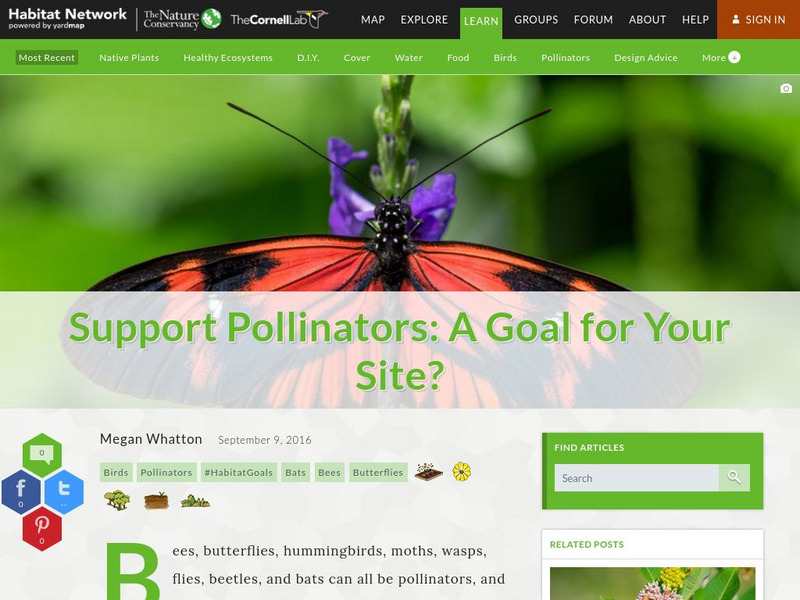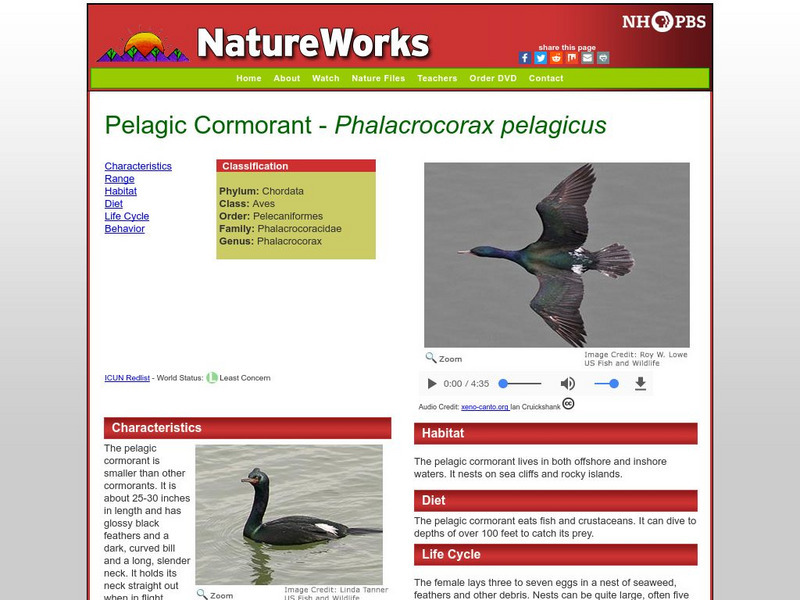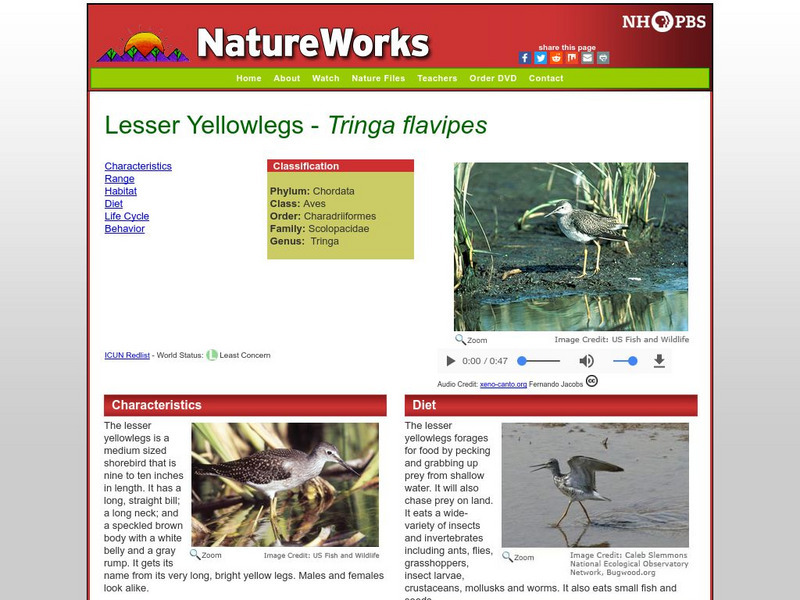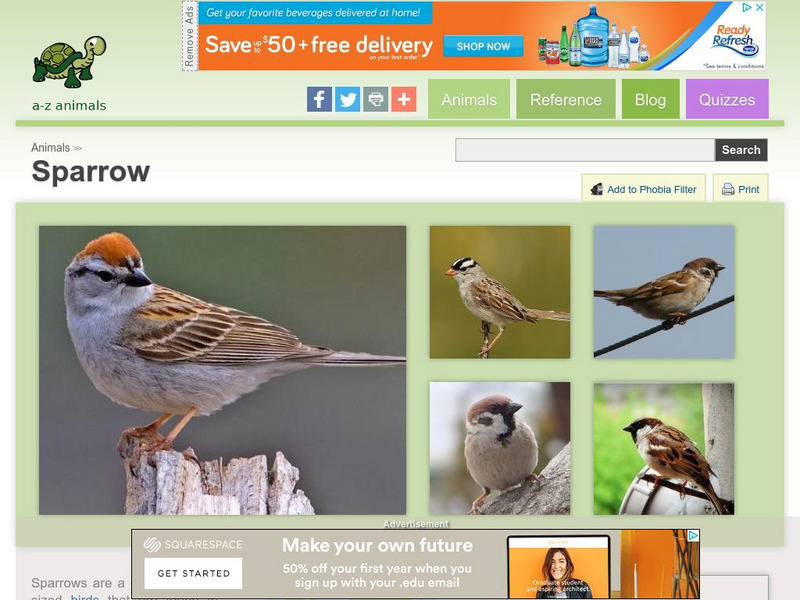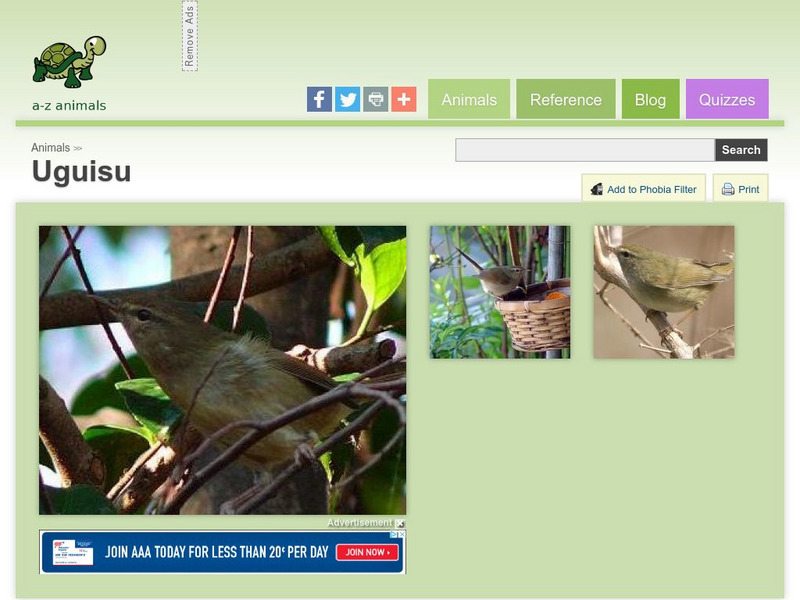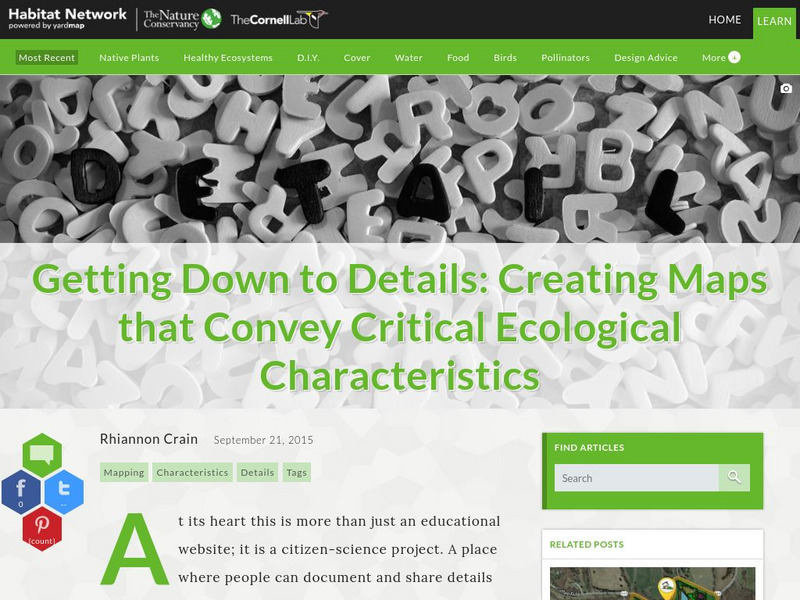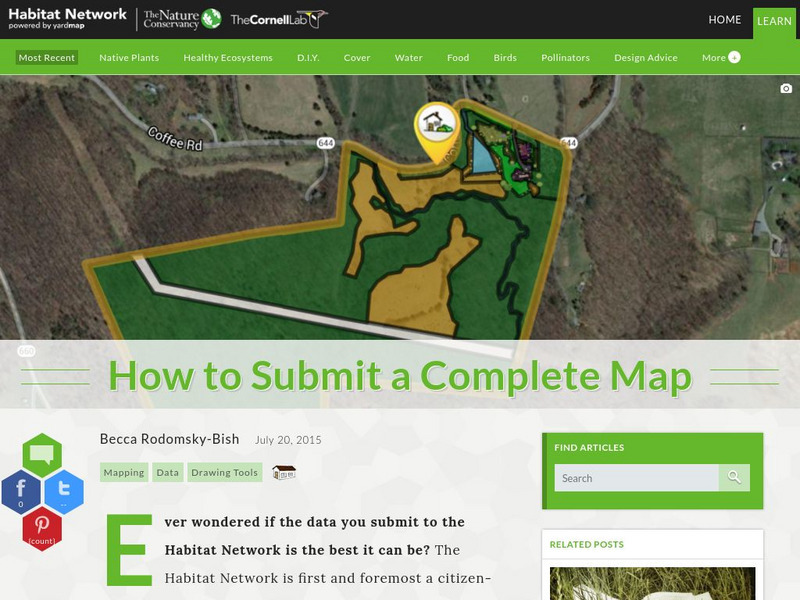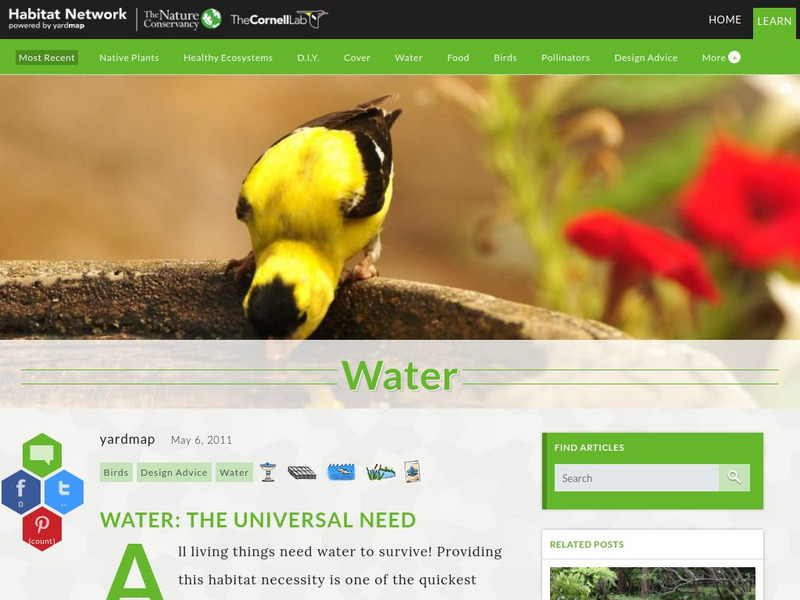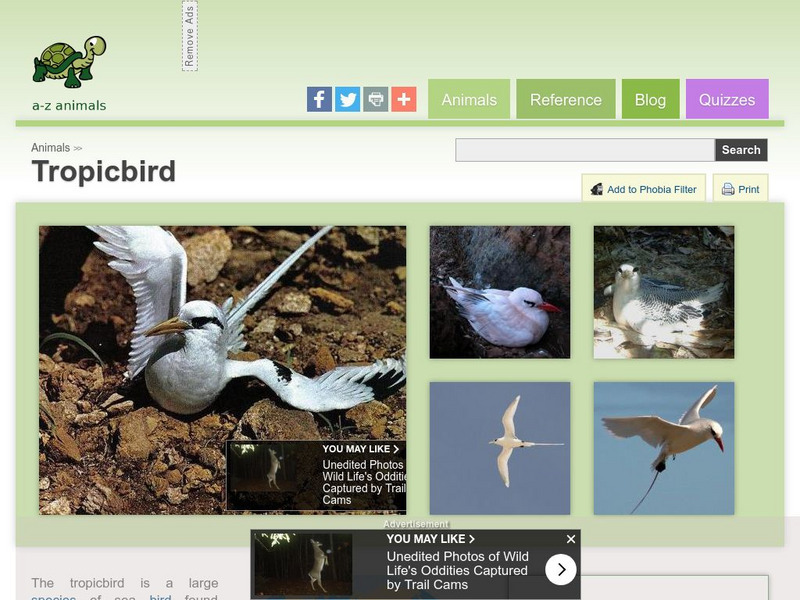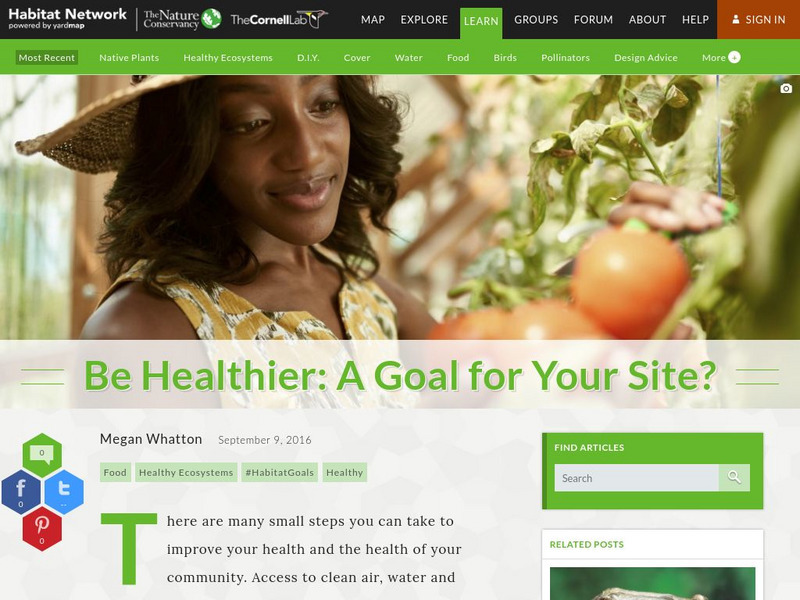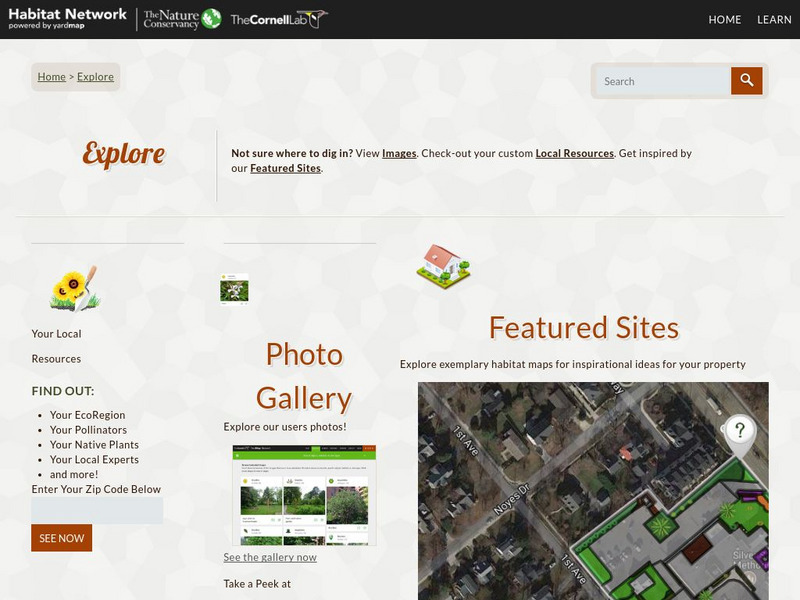Cornell Lab of Ornithology
Cornell Lab of Ornithology: Killdeer
The Killdeer is famous for using the broken wing diversion to lure predators away from its nest. Find out more interesting facts and hear the sounds of this interesting bird on this detailed site.
PBS
Nh Pbs: Nature Works: American Robin
Explore the world of the American Robin through this clear and concise resource. Students will learn more about information on the characteristics, reproduction, habitat, food, song, and more through this site.
PBS
Nh Pbs: Nature Works: Mountain Bluebird
This site created by NatureWorks focuses on the Mountain Bluebird. The content of this resource includes a look at this species' characteristics, range, habitat, diet, life cycle, and behavior.
Cornell Lab of Ornithology
Habitat Network: Support Pollinators: A Goal for Your Site?
Find out the three easy steps citizens can take to support pollinators including providing shelter and nesting materials, food, and avoiding using chemicals like pesticides and fertilizers.
PBS
Nh Pbs: Nature Works: Pelagic Cormorant
Find out more about the Pelagic Cormorant through this educational resource. This site features information ranging from life cycle, behavior, range, habitat, characteristics, and diet.
PBS
Nh Pbs: Nature Works: Lesser Yellowlegs
What makes the Lesser Yellowleg unique? This educational site provides you with information ranging from characteristics and behavior to diet and life cycle.
A-Z Animals
A Z Animals: Animal Facts: Grouse (Tetraoninae)
This entry identifies the defining characteristics the Tetraoninae, more commonly known as the Grouse.
A-Z Animals
A Z Animals: Animal Facts: Guinea Fowl (Numididae)
This entry identifies the defining characteristics of the Numididae, more commonly known as the Guinea Fowl.
A-Z Animals
A Z Animals: Animal Facts: Sparrow (Passeridae)
This entry identifies the defining characteristics of the passeridae, more commonly known as the sparrow.
A-Z Animals
A Z Animals: Animal Facts: Uguisu (Cettia Diphone)
This entry identifies the defining characteristics of the cettia diphone, otherwise known as the uguisu.
Cornell Lab of Ornithology
Habitat Network: Four Mapping Mistakes That Affect Data Quality
Learn the tips and tricks of successful habitat mapping for this citizen science project.
Cornell Lab of Ornithology
Habitat Network: Creating Maps That Convey Critical Ecological Characteristics
Get to the heart of this citizen science project that invites citizens from all over the country to map and identify their habitat ecology.
Cornell Lab of Ornithology
Habitat Network: How to Submit a Complete Map
Find out how to submit your local habitat map containing real data to an established citizen science project.
Cornell Lab of Ornithology
Habitat Network: Pollinators at Home: Intro to Pollinator Gardening
Find out how to provide native plants that foster the activity of insects and other pollinators.
A-Z Animals
A Z Animals: Animal Facts: Green Bee Eater (Merops Orientalis)
This entry identifies the defining characteristics Merops Orientalis, more commonly known as the Green Bee-Eater.
Cornell Lab of Ornithology
Habitat Network: Water
Learn about some different ways to provide water for any type of backyard habitat.
A-Z Animals
A Z Animals: Animal Facts: Toucan (Ramphastos Toco)
This entry identifies the defining characteristics of the ramphastos toco, more commonly known as the toucan.
A-Z Animals
A Z Animals: Animal Facts: Tropicbird (Phaethon)
This entry identifies the defining characteristics of the phaethon, more commonly known as the tropicbird.
Common Sense Media
Common Sense Media: Editorial Review: The Time Tribe
A review of the game "The Time Tribe." Four children, a wily bird, a devious enemy, a mysterious manor house, a magical key-ring, and an elevator that travels through time. Will you get lost in the sands of time?
Cornell Lab of Ornithology
Habitat Network: Ecological, Practical, Aesthetic Advantages of Wild Shorelines
Habitat Network examines what we know about the ecological functioning of shorelines, and makes recommendations for design, planting, and management of these specialized zones.
Cornell Lab of Ornithology
Habitat Network: Map Your Community
The Habitat network wants to show how mapping is a powerful way to connect you to your community.
Cornell Lab of Ornithology
Habitat Network: Be Healthier: A Goal for Your Site?
Learn about the many small steps people can take to improve one's health and the health of one's community.
Cornell Lab of Ornithology
Habitat Network: Brush Piles
Find out why brush piles are beneficial to a habitat.
Cornell Lab of Ornithology
Habitat Network: Explore
View images of a variety of habitats, check-out custom local resources, and get inspired by featured habitat sites.



